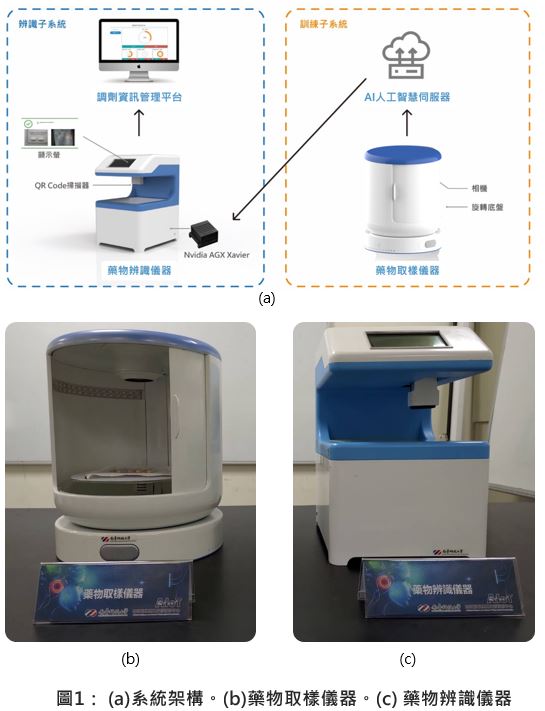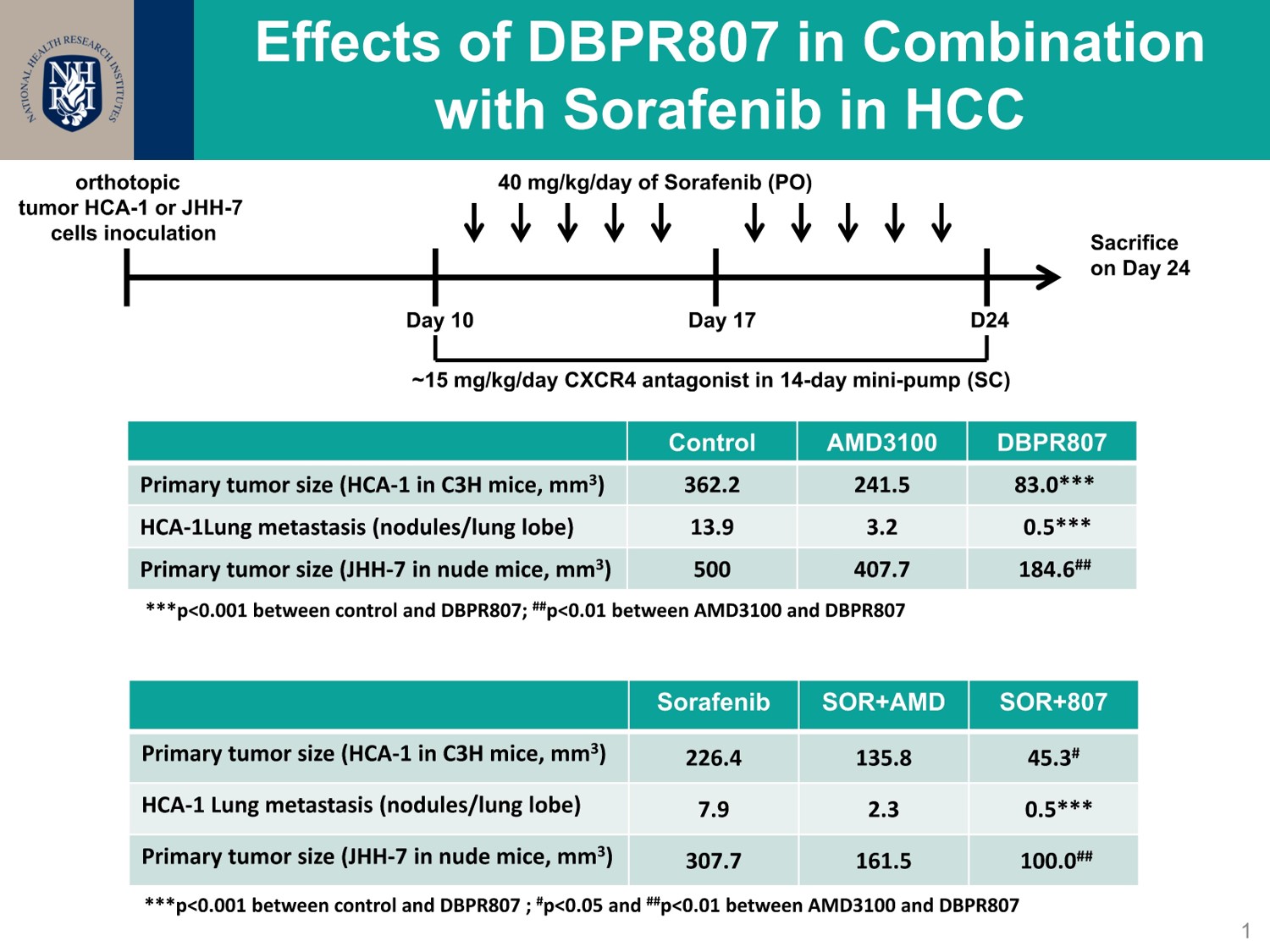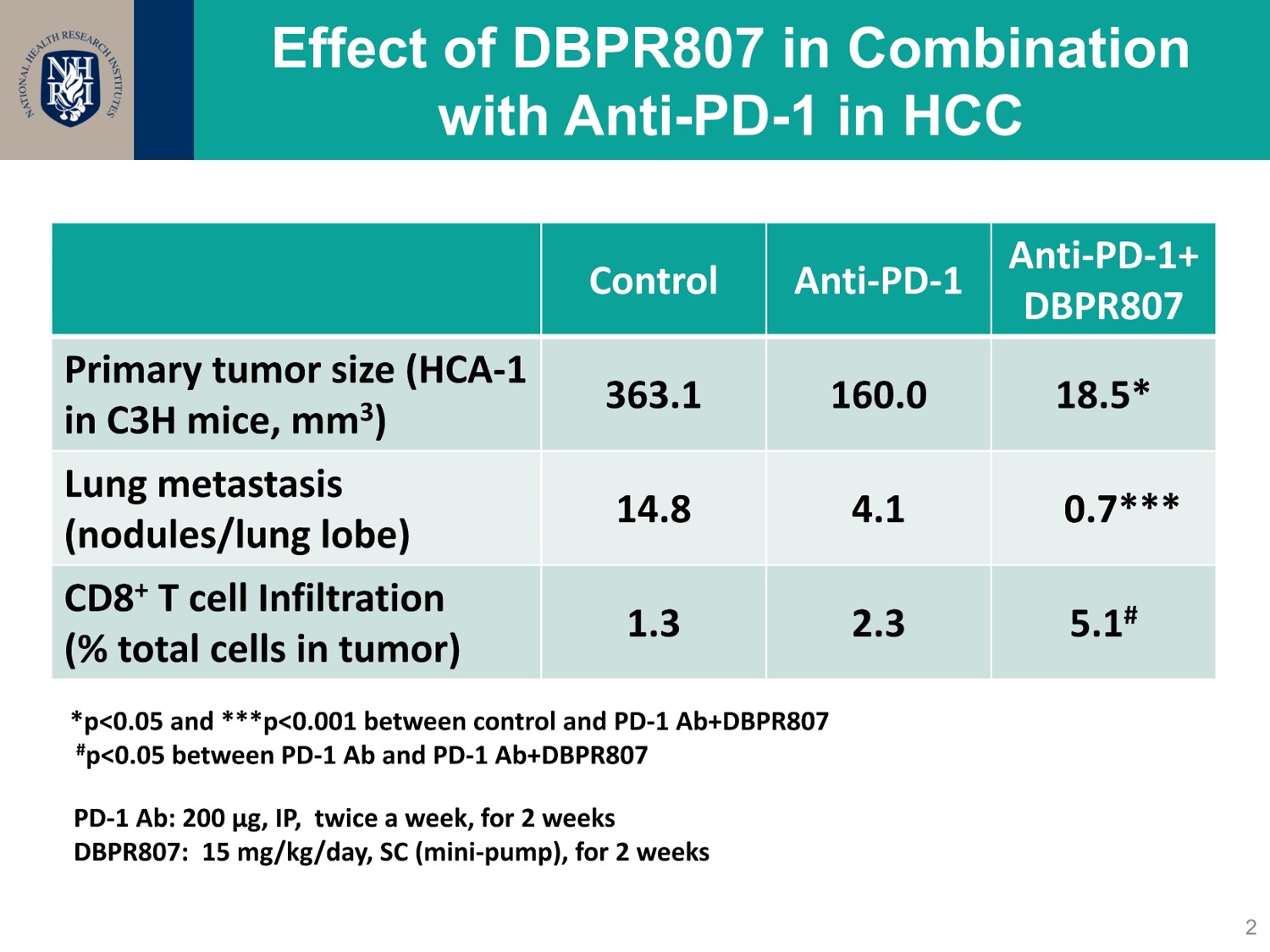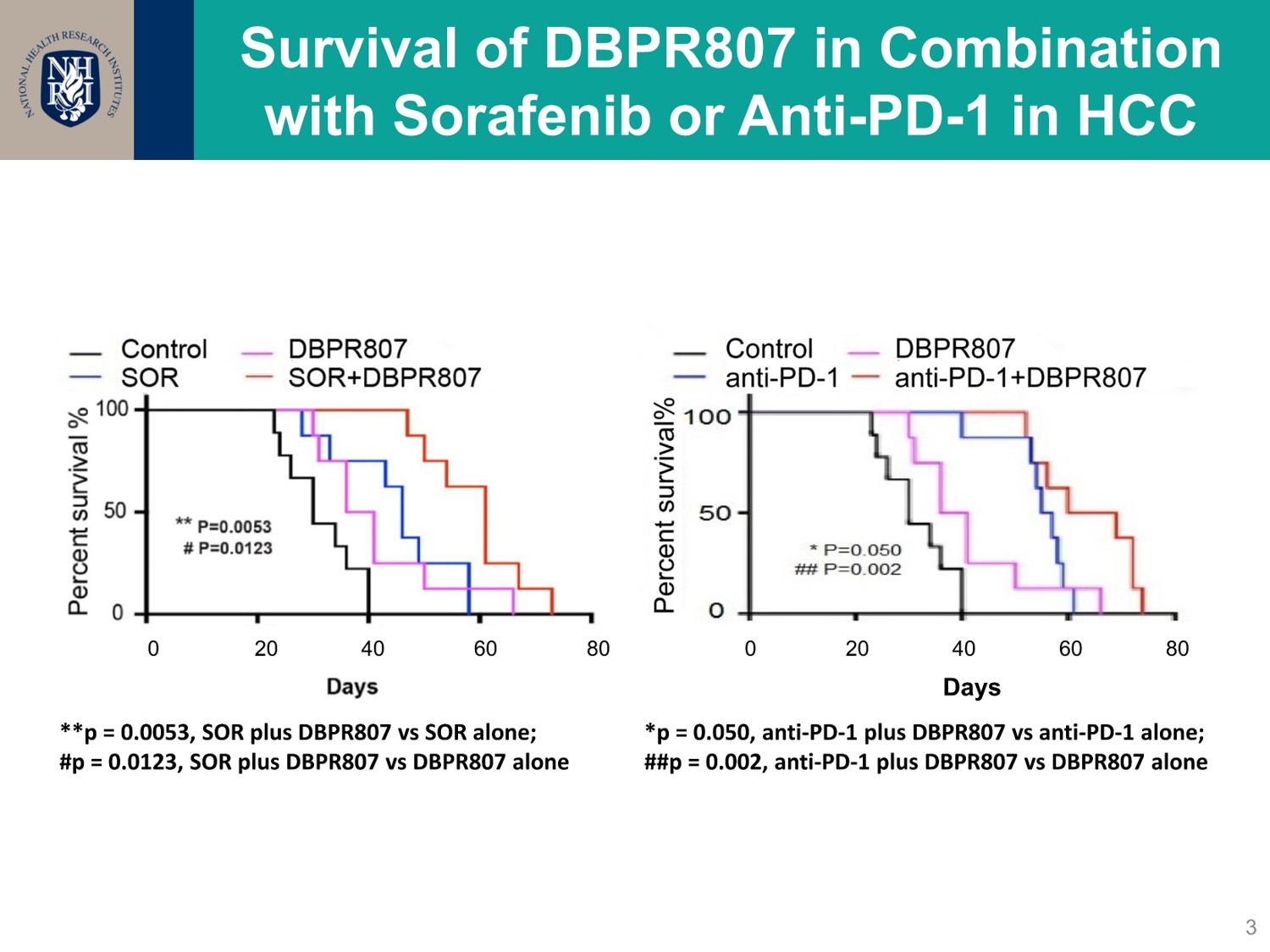| Technical Name | DBPR807: a CXCR4-Targeted Antagonist | ||
|---|---|---|---|
| Project Operator | National Health Research Institutes | ||
| Project Host | 夏克山、陳韻晶 | ||
| Summary | DBPR807 can significantly suppress tumor growth, prevent distant metastasis, reduce angiogenesis, normalize tumor microenvironment and promote cytotoxic T-cell infiltration. In various HCC models, DBPR807 itself can prolong overall survival as effectively as marketed anti-angiogenic agent sorafenib and immune checkpoint inhibitor anti-PD-1 Ab. What’s more, its combination therapy with either sorafenib or anti-PD-1 Ab can extend life expectancy even more significantly than aforementioned monotherapy. |
||
| Scientific Breakthrough | Combination therapy of DBPR807 with sorafenib or anti-PD-1 Ab has been shown to have better efficacy in HCC disease animal models implanted with HCA-1 or JHH-7 liver cancer cells than the single treatment of sorafenib or anti-PD-1 Ab. This novel combination protocol can simultaneously inhibit angiogenesis, enhance immune response and prevent cancer metastasis, leading to a new horizon of cancer treatment. |
||
| Industrial Applicability | DBPR807 can significantly suppress tumor growth, prevent distant metastasis, reduce angiogenesis and normalize tumor microenvironment as well as promote cytotoxic T-cell infiltration. Although DBPR807 treatment alone can prolong survival as effectively as sorafenib and anti-PD-1 Ab, however, its combination therapy with either of them can extend overall survival more significantly than monotherapy. As such, this newly developed combination therapy may confer HCC cancer patients with a new therapeutic strategy and may also have a great impact on other advanced cancers of high metastatic incidences. |
||
| Keyword | CXCR4 antagonist hepatocellular carcinoma sorafenib anti-PD-1 metastasis anti-angiogenesis tumor-associated macrophages cytotoxic T cell tumor microenvironment overall survival | ||
- enachen@nhri.edu.tw
other people also saw







